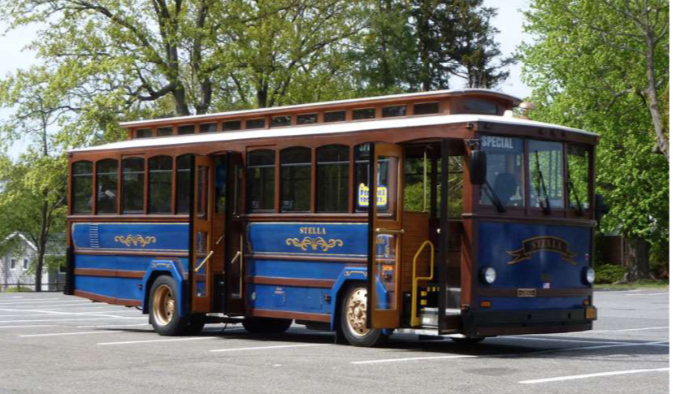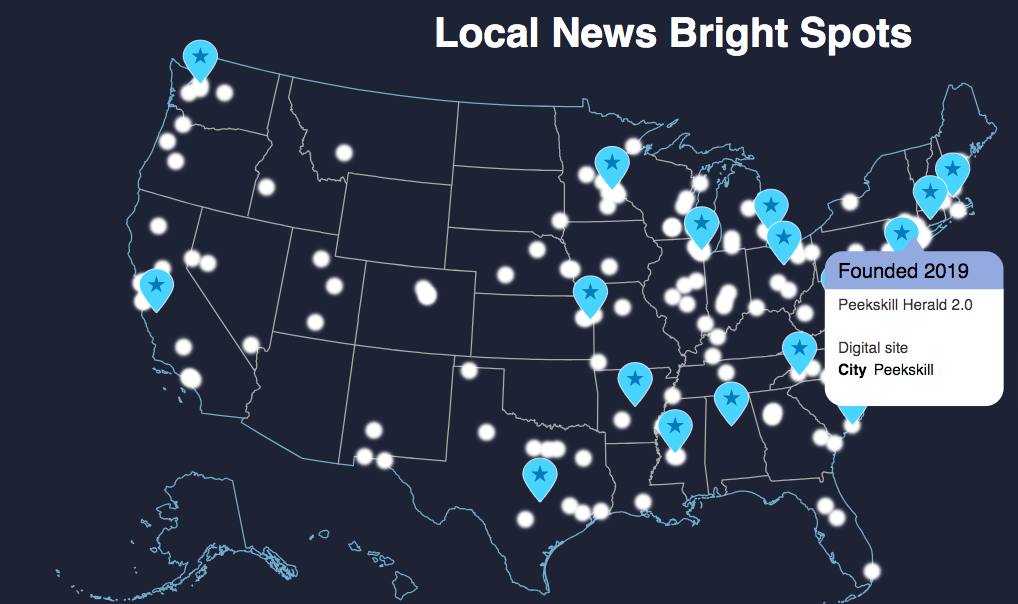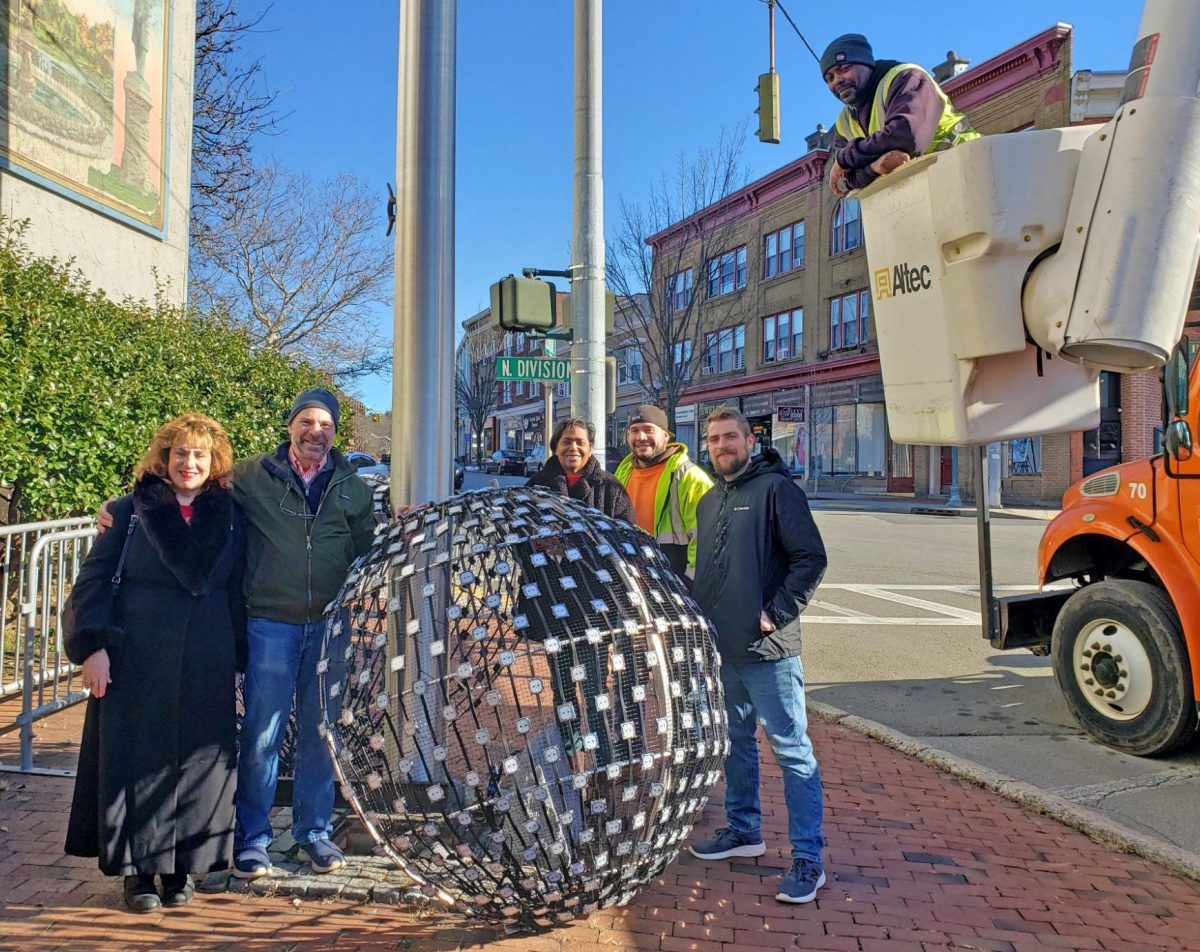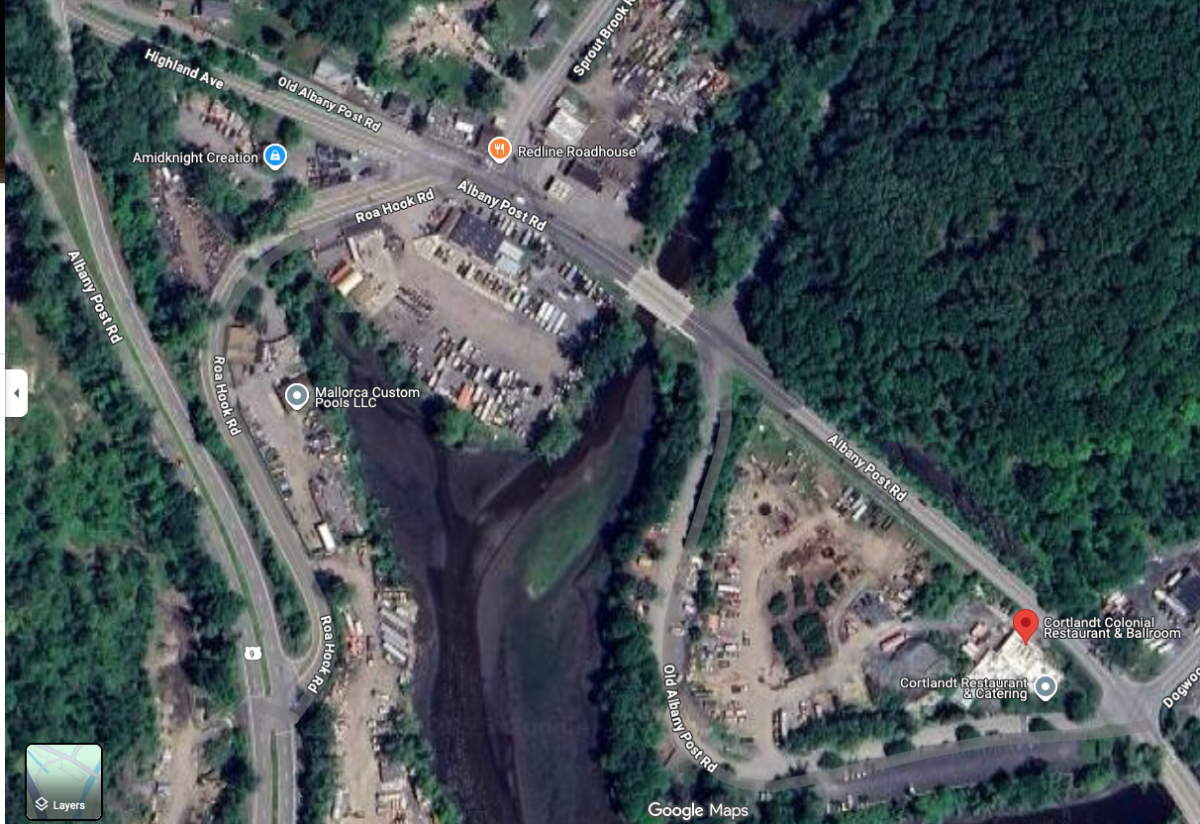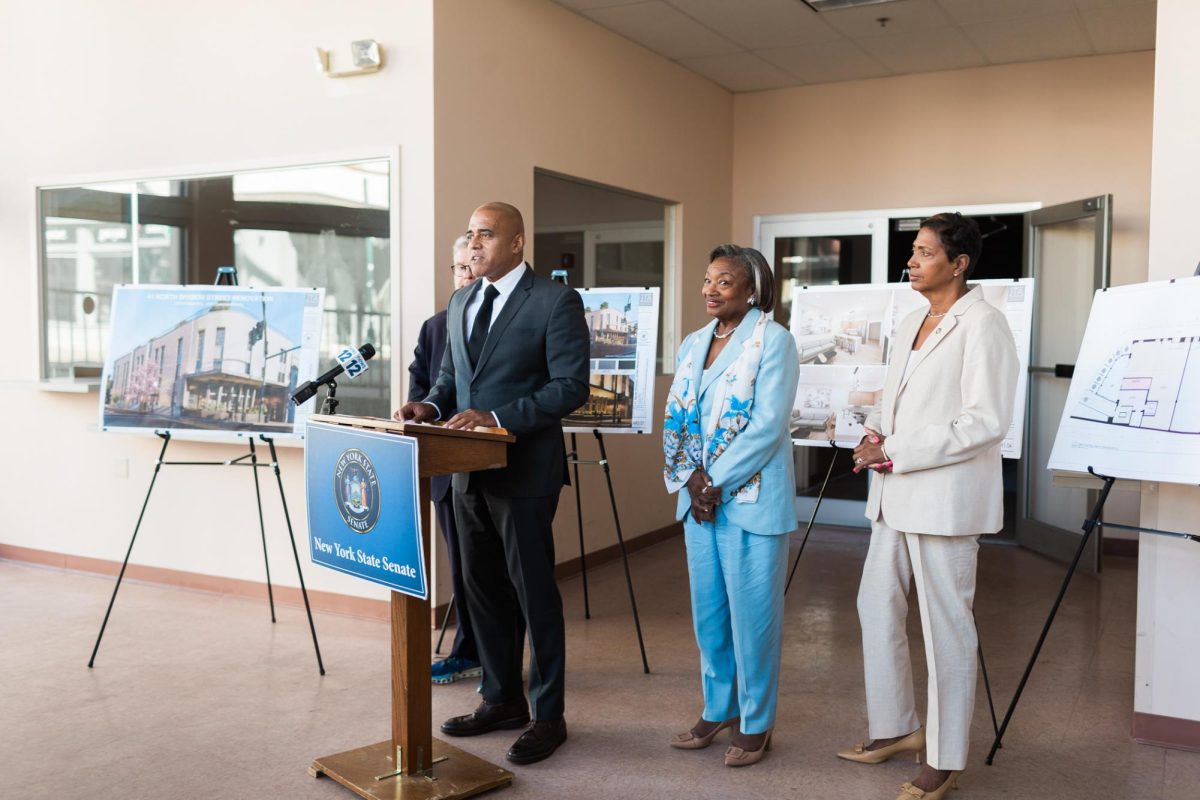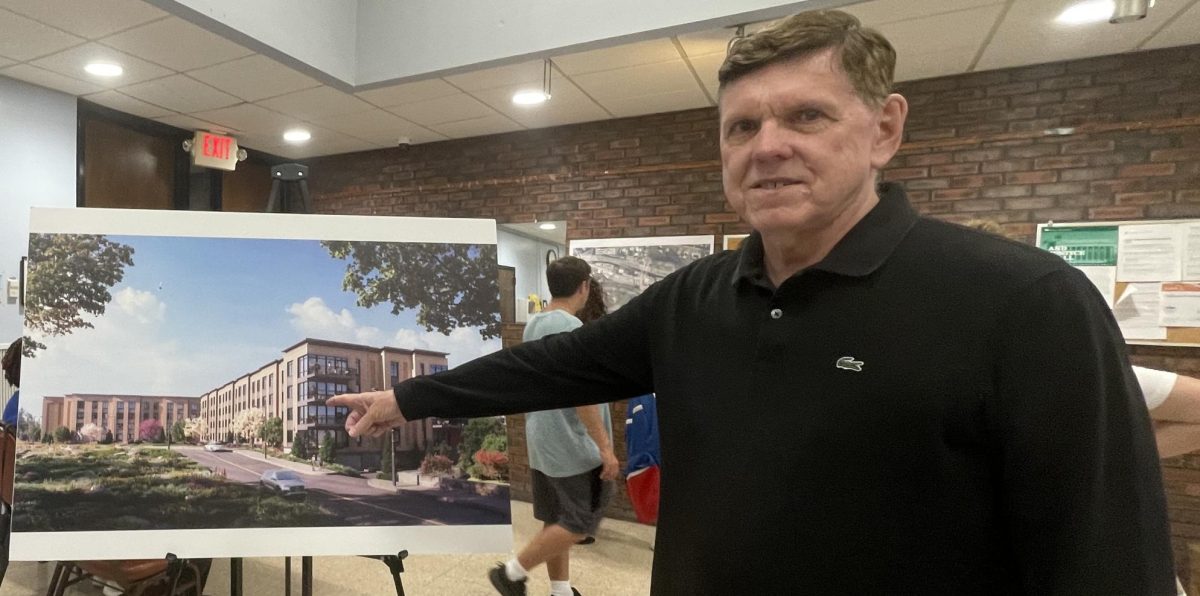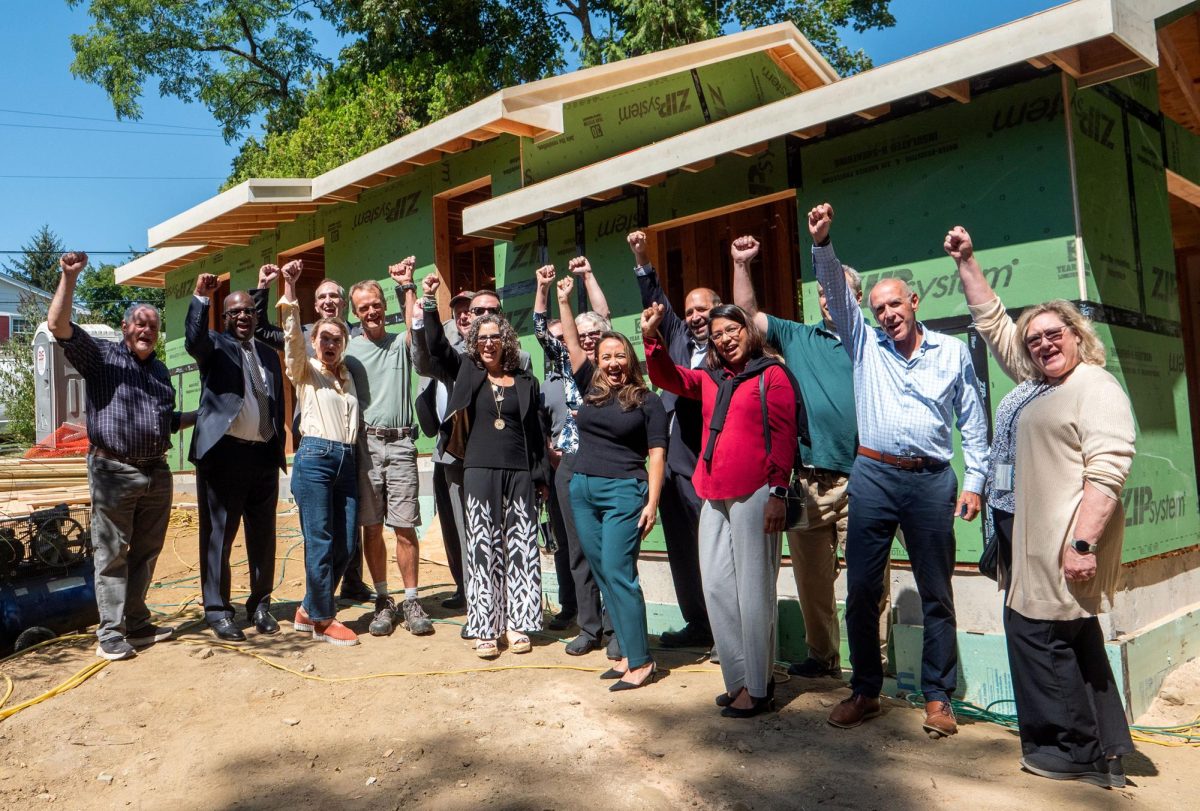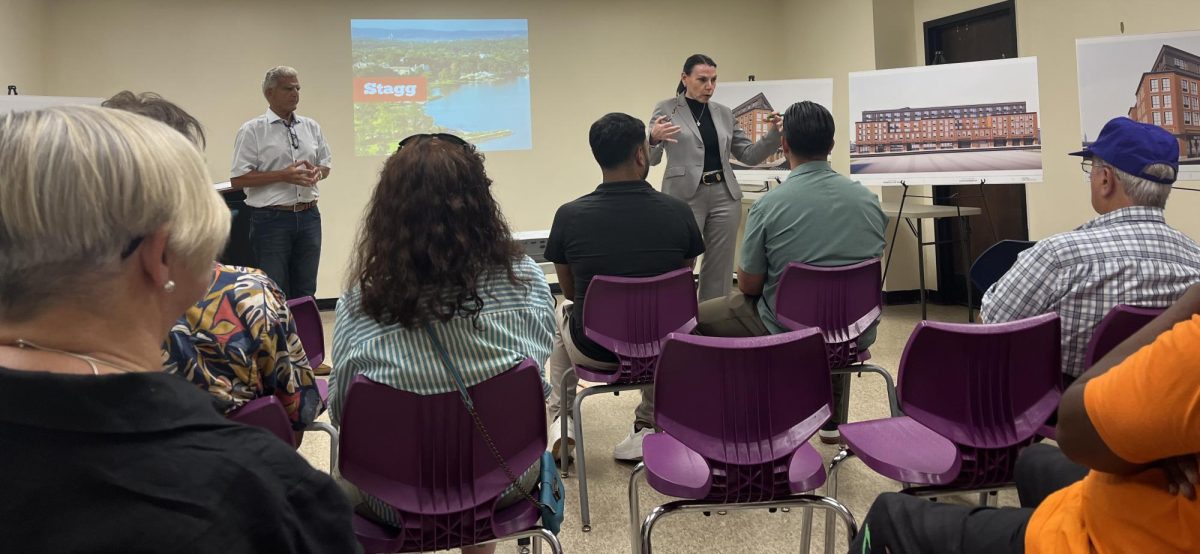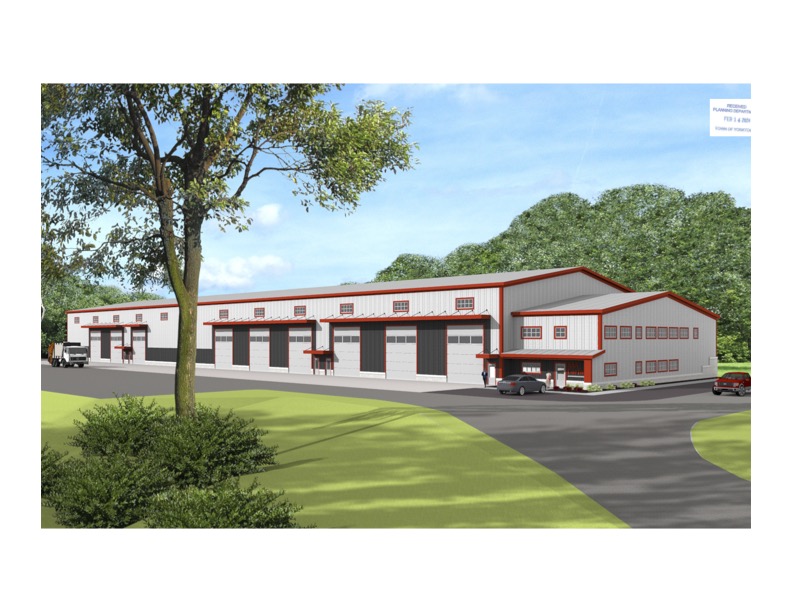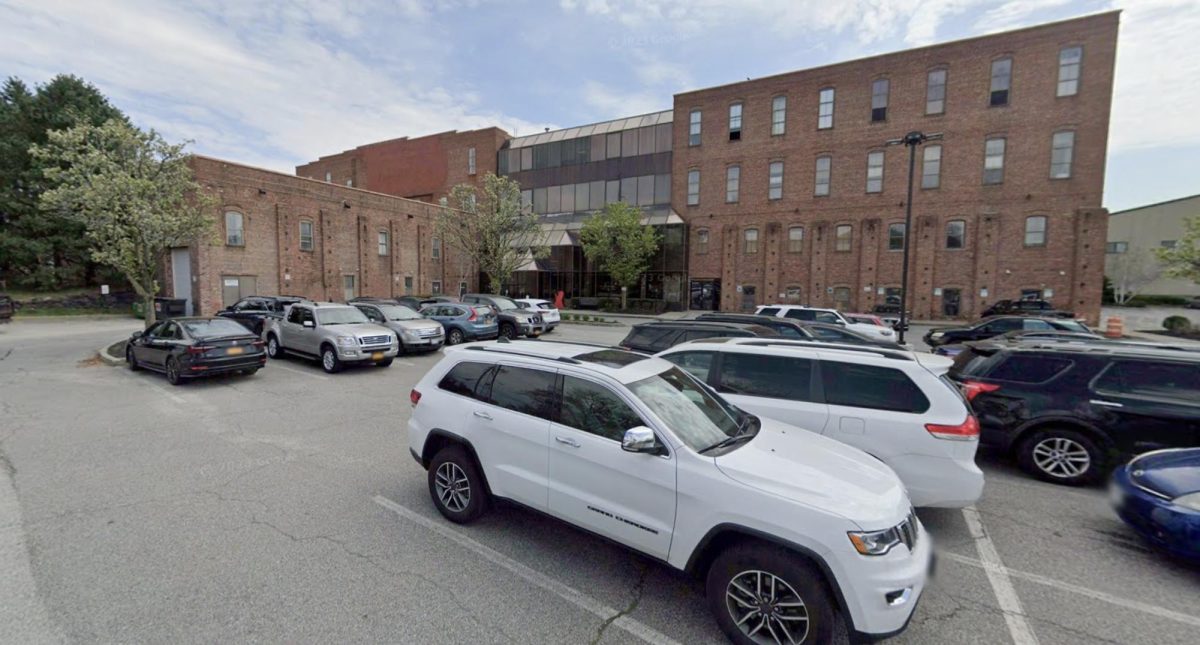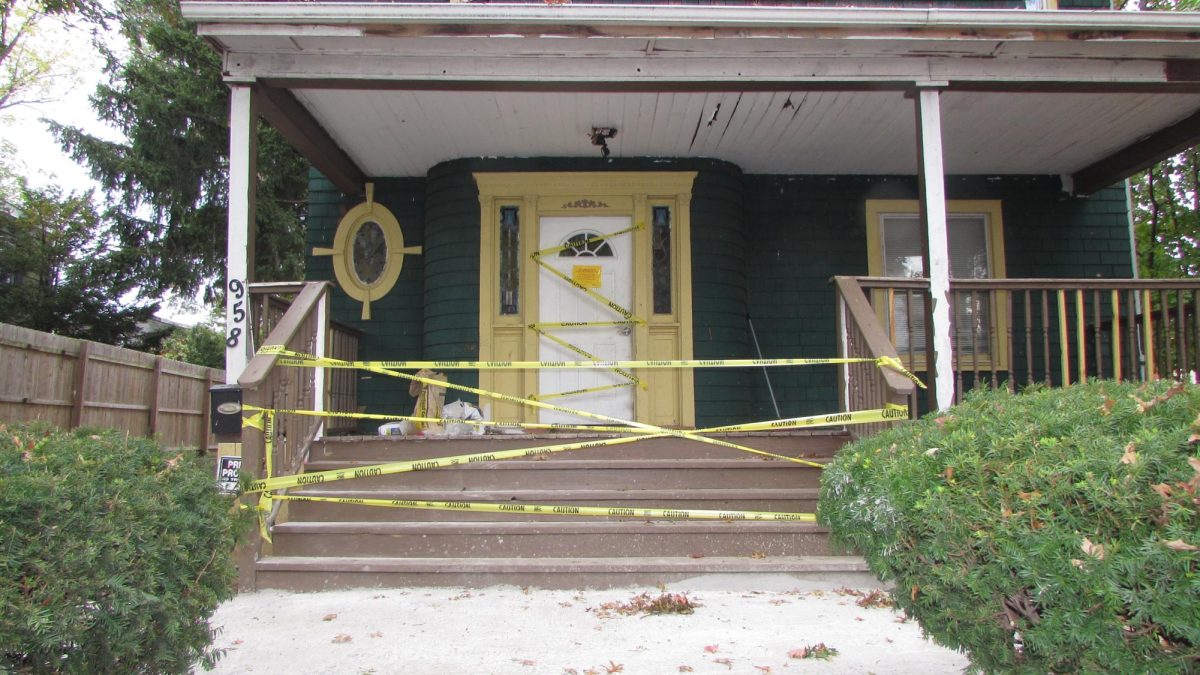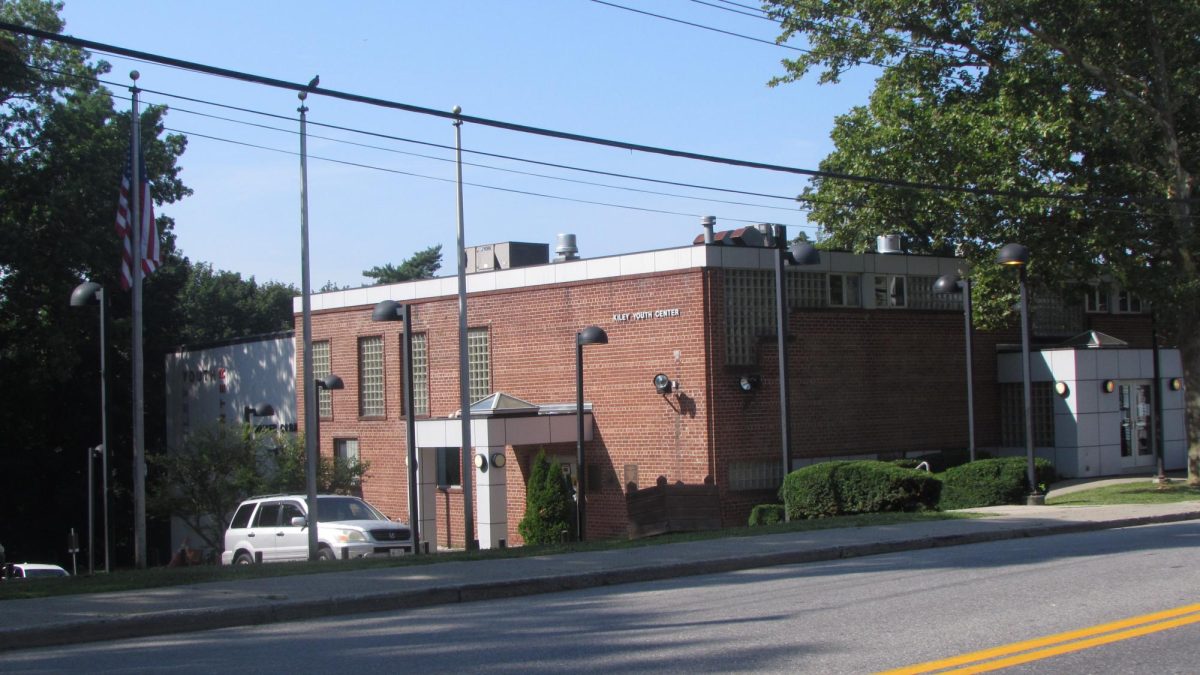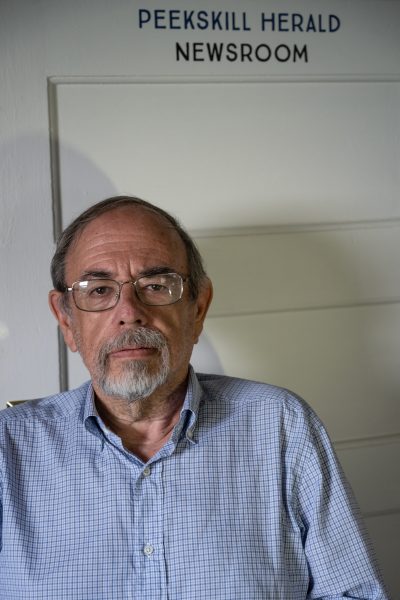A proposal to return a well-known motorized trolley to Peekskill’s streets seems to have hit a roadblock.
“Stella The Trolley,” owned and operated by Leslie Masson since 2011, was retired from service early this year.
“As the saying goes, ‘All good things must come to an end,’” Masson wrote on Facebook on Jan. 4. “Yesterday, some of my crew and I took a last ride around Peekskill on Stella.”
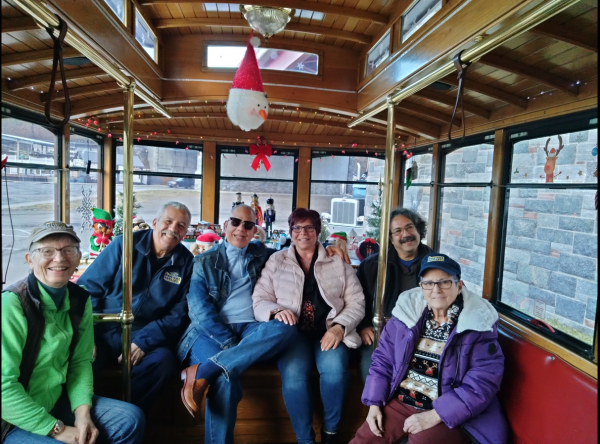
The trolley, which Masson had restored after purchasing it in Seattle, has over 273,000 miles and requires significant constant maintenance of the wood finishes. In addition, replacement parts will be expensive and difficult to find according to a report (here on page 13) prepared by a city mechanical engineer.
In a July 21 letter by City Manager Matt Alexander to the Peekskill Industrial Development Agency (PIDA), Alexander wrote that the owner of Stella wanted to sell the trolley for $20,000. Alexander said the Business Improvement District (BID) and the city were interested in keeping the trolley running in Peekskill.
“Upon thinking about the trolley and its potential uses, both the Business Improvement District (“BID”) and myself are interested in seeing the Peekskill Trolley stay here as an asset,” Alexander wrote. “I also spoke with Riverfront businesses and they have expressed interest in this as well. They have indicated that they would be interested in using this asset as a connector between the Riverfront, Downtown and the Train Station.”
Alexander stated the city could not manage and operate the trolley but could help out and rent it. He asked Deborah Post, the chair of the IDA, if the agency might be interested in buying Stella.
Mechanic’s report details cost, maintenance issues
However, Alexander then had the city’s mechanic inspect the trolley. Following the August inspection, the mechanic wrote “In conclusion, we respectfully recommend that the City of Peekskill take a pass on the purchase of this vehicle for the reasons listed above. Please note that a full inspection and evaluation in a quality repair facility may expose more trouble with this Trolley, that wasn’t apparent during our 8/21/2023 visit.”
How to proceed regarding the trolley was then discussed at an IDA board meeting on Sept. 26. At that meeting, Matt Rudikoff, the city’s economic development director, said he informed the BID board directors of the recommendation not to purchase the trolley.
“The BID was not happy about it because it’s a great idea, we want to do it, the city manager wants to do it,” Rudikoff said.
Drew Claxton, a member of the IDA board, then said, “Well actually, Brian Fassett, the councilman, said that the council had not reviewed that report or discussed it as yet and wanted to have that brought in house before it was discussed. He questioned the mechanic’s report,” Claxton said.
“I read the report – it doesn’t look good at all,” said IDA board member Alan Kravitz. “There’s things in there which are fundamental and they probably would not pass a DOT [inspection].”
Rudikoff said one of the board members of the BID suggested the trolley might be used as a visitor’s center near the waterfront.
Electric shuttle proposed for DRI money
A “green” alternate shuttle service for Peekskill was pitched as a candidate for some of the city’s $10 million DRI grant money but was not awarded funding because it didn’t meet the DRI guidelines.
The group “Ride! Peekskill” sought funding to purchase an electric shuttle bus as part of an overall local transit project. John Sharp, Naz Quadri, Fred Camino and Tom Walsh, the group’s founders, argued their project was a boon for the city. The program would have created an app that united the electric shuttle and electric bikes throughout Peekskill and be operated by their private company.
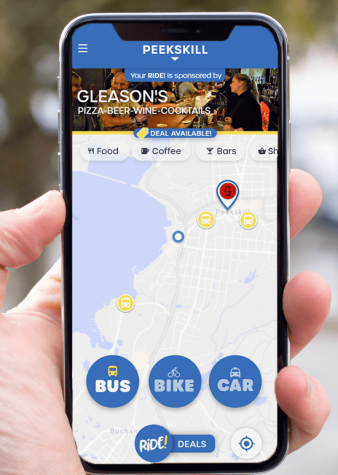
“DRI is such a unique and rare opportunity to get funding for specifically the type of Downtown revitalization project RIDE! proposes,” they wrote. “We’re asking for just 2 percent of the total DRI allocation. That money will be spent one way or another, why not invest it into a public private partnership where the private party bears the majority of the risk and the public entity receives massive benefits? Most cities pay private operators to bring in a system like ours. We are essentially offering to implement and run a modern mobility system at no cost to the city — and in our long term goal we wish to share revenue with the city,” they wrote in their proposal.
In her January Facebook post, Masson reflected on Stella’s history in Peekskill.
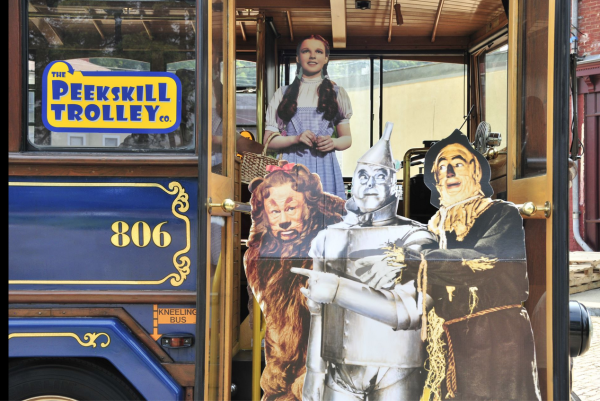
“Although very sad, we got to reflect on the many ways that Stella impacted Peekskill and the surrounding areas. She made so many happy memories for dozens and dozens of wedding parties. She put more smiles on children’s faces that we can count and had more pictures taken of her than most Rock Stars. “We do not know what the future holds for Stella, but she will always be remembered as ‘Stella, The Peekskill Trolley.’ Thanks to everyone who ever rode on her or waved at us as we drove by, we will miss you.”
In published reports when Stella made her debut at a Juneteenth parade in 2011, it was noted it was built in 1998 by a company called Cable Car Classics in the Sonoma wine country of California. Stella is a Golden Gate model trolley modeled after the classic San Francisco trolleys. The 20,740-pound, 31-seat trolley holds a 250-horsepower diesel engine.
Conor Greene, a co-founder of Peekskill Walks, has followed the discussions about having the city become involved in operating Stella and expressed his opposition.
“Hopefully the [mechanic’s] report put an end to that idea. We’re not sure where the idea regarding Stella came from. It would probably cost taxpayers a lot of money in the long run,” he said.
“There’s a lot of merit to the idea of some kind of locally-based transit service, but not just from a tourism point of view,” he said. “If the city really wants to support some kind of shuttle, it really needs to go back and review the RIDE proposal.”
Fassett and Masson did not return requests for comment.


